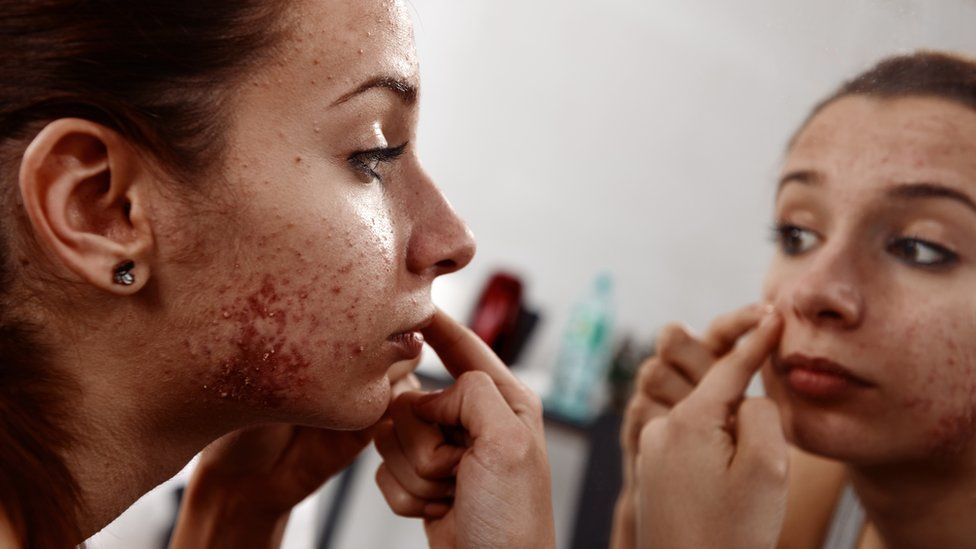Concern over rise in acne drug use
- Published

Campaigners fear too many young people are being put on the powerful anti-acne drug Roaccutane, which has been linked with suicidal feelings.
NHS prescriptions have risen steadily in recent years, despite awareness of the risks.
Nearly 49,000 items were dispensed in England in 2016.
In 2014 the figure was about 37,000, and in 2012 it was 27,000, NHS Digital data shows.
Experts say the drug, which can also be given as a gel, is extremely effective and appropriate to use, as long as patients are carefully monitored.
Millie Kieve, founder of the campaign group the Adverse Psychiatric Reactions Information Link, has told The Times newspaper that Roaccutane is being overused.
The British Association of Dermatologists said as long as safety recommendations were being adhered to then the increasing number of prescriptions was not a cause for concern.
Roaccutane
The drug carries a warning of side-effects including depression and mood changes.
Medicines watchdog the MHRA issued a warning to doctors about the potential for psychiatric disorders such as depression, anxiety, and in rare cases suicidal thoughts, at the end of 2014.
It followed some high-profile reports of young people who had killed themselves.
The parents of a man who took his own life in 2012 have called for further assessments of its risks.
Heather and David Roberts say their son Olly, 32, suffered from anxiety and depression for 11 years after he took a course of Roaccutane.
Manufacturer Roche said: "Information provided with isotretinoin [Roaccutane] carries a warning that some patients may experience mood changes, including an increase in depression."
Experts advise:
- Roaccutane should be prescribed only by or under the supervision of a consultant dermatologist
- It should never be given to children younger than 12
- Prescribers should warn patients and their family to be aware of the potential for psychiatric disorders such as depression, anxiety, and in rare cases suicidal thoughts, and to be vigilant for symptoms
- In patients with a history of depression, the benefits of treatment should be carefully weighed against the risk of psychiatric disorders
- Patients should be monitored for signs of depression and referred for appropriate treatment if necessary. Stopping Roaccutane may not be enough to alleviate symptoms, and further psychiatric or psychological evaluation may be necessary
About 80% of adolescents will have acne for some period, and it can occur in adults too.
A spokesman from the British Association of Dermatologists said: "Isotretinoin [Roaccutane] is a very effective treatment for acne and has hugely improved many peoples' quality of life, particularly as the psychological burden of acne can be enormous for some people.
"Because it is a very potent drug it is vital that it is prescribed by experts, that patients are informed about the potential risks and closely monitored, and that the guidelines for its use are carefully followed. As long as these recommendations are adhered to then the increasing number of prescriptions for isotretinoin is not, in itself, a cause for concern."